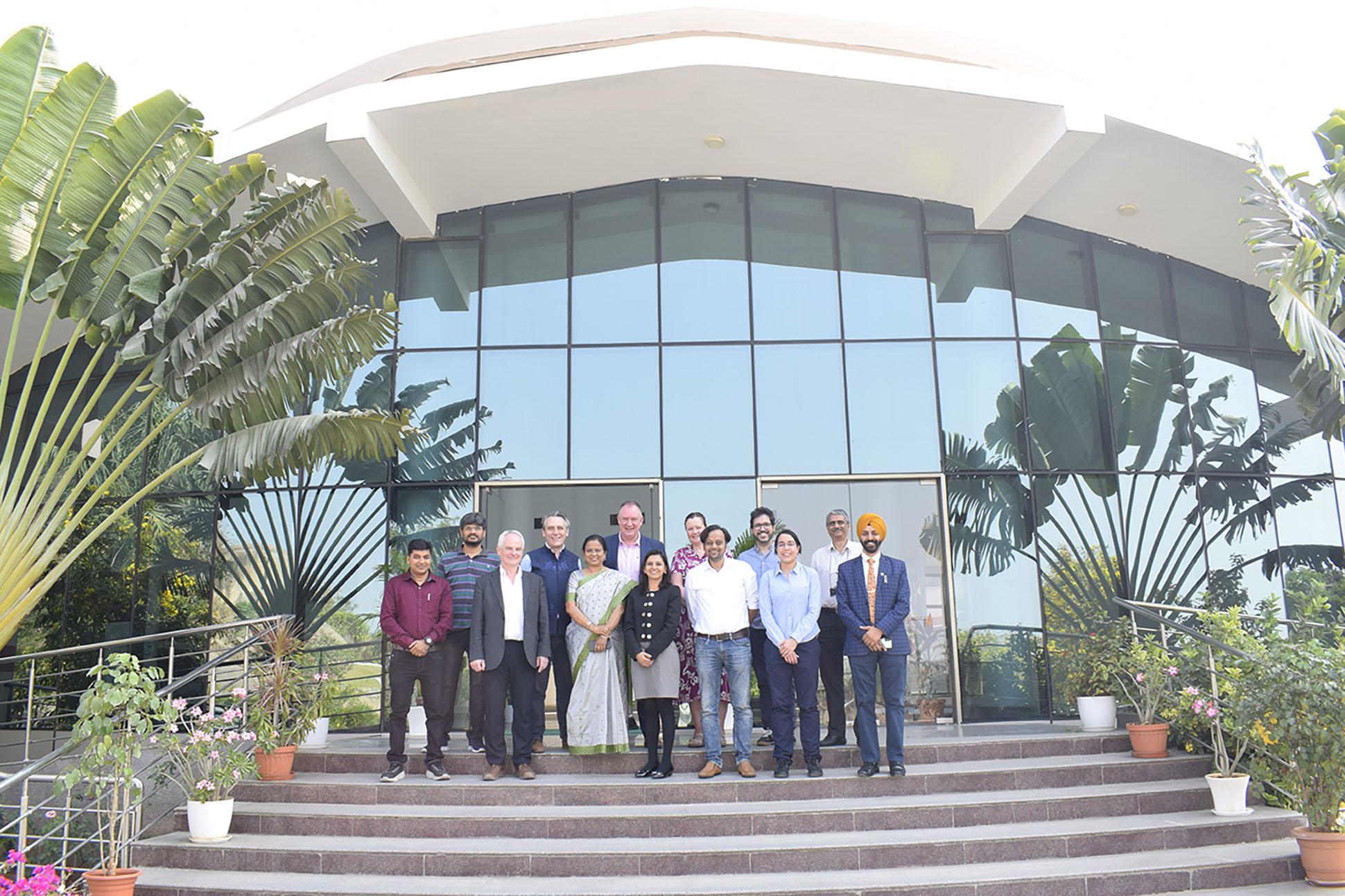The Pirbright Institute has co-signed a Memorandum of Understanding with India’s National Institute of Animal Biotechnology (NIAB) to create an animal disease and zoonosis laboratory partnership with the UK.
Pirbright director, Professor Bryan Charleston, joined representatives from the UK’s Animal and Plant Health Agency (APHA) and Foreign, Commonwealth & Development Office (FCDO) on a trip to India.
The MoU, signed in Hyderabad by all three parties, strengthens an FCDO UK Government programme to deliver on commitments in the 2030 India-UK Roadmap.
Professor Charleston said: “Conversations and meetings during the visit allowed representatives from NIAB, APHA and FCDO to deliberate a range of projects that will be strengthened and deepened through the MoU, building on an inaugural meeting in October last year.
“I was able to attend an international symposium on ‘Animal virus, vaccines and immunity’ (AVVI-2024) held at the Institute of Veterinary Science & Animal Husbandry (IVSAH) in Bhubaneswar.”
The symposium brings scientists and policymakers together on a single platform to discuss the pursuit of disease-free animals in ensuring food security and human safety.
In his key message to the conference, Professor Charleston said: “The deployment of effective veterinary vaccines has had a major impact on improving food security and consequently human health. Pirbright has a strong track record of developing new technologies to interrogate B cell responses and using structural biology to improve antigens.”
The 10-year UK-India Roadmap aims to build on the two countries’ existing bilateral research, science and innovation infrastructure and governmental relationships to support high-quality, high-impact research and innovation.
Image caption: Professor Bryan Charleston (front row, second left); Deputy High Commissioner Gareth Wynn Owen (back row, second left) and Dr Taru Sharma, Director, NIAB (front row, third left) with delegates.
